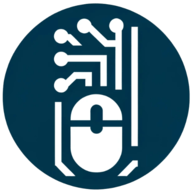Welcome to our exploration of the advancements in software testing and quality assurance (QA). As technology evolves, so does the need for robust and efficient testing methods. This blog post delves into the latest trends and advancements in the field, from AI-powered testing to the rise of DevOps. We'll discuss how these innovations are shaping the future of software development and ensuring the delivery of high-quality, reliable software products.
The Evolution of Software Testing and QA
The field of software testing and QA has seen significant changes over the years. Traditional manual testing methods have given way to automated testing, and now, we're witnessing the rise of AI-powered testing tools. These advancements are not just about speed and efficiency. They're about improving the quality of software products and making the testing process more reliable.
Automation has been a game-changer in software testing. It has allowed testers to execute repetitive tasks quickly and accurately, freeing up their time to focus on more complex testing scenarios. However, automation is not without its challenges. It requires a significant upfront investment and can be difficult to implement for complex or constantly changing software systems.
AI-powered testing tools are the latest advancement in the field. These tools use machine learning algorithms to learn from past testing data and predict potential issues in new software products. They can even suggest solutions to these issues, making the testing process more proactive and efficient.
The Rise of DevOps in Software Testing
DevOps is another major trend in software testing and QA. It's a set of practices that combines software development (Dev) and IT operations (Ops) to shorten the system development life cycle and provide continuous delivery of high-quality software.
DevOps promotes a culture of collaboration and communication between developers and IT professionals. It encourages the use of automation and monitoring tools to speed up the development process and ensure the quality of the software.
In the context of software testing, DevOps promotes the idea of "shifting left". This means involving testers early in the development process to catch and fix issues before they become major problems. It also means integrating testing into the continuous integration/continuous delivery (CI/CD) pipeline to ensure that every change to the software is tested before it's deployed.
The Impact of Cloud Computing on Software Testing
Cloud computing has also had a significant impact on software testing and QA. It has provided testers with a scalable, flexible platform for testing software applications. With cloud-based testing tools, testers can easily simulate different user environments and scenarios, making the testing process more comprehensive and accurate.
Cloud computing also supports the concept of testing as a service (TaaS). This is a cloud-based service that provides testing infrastructure and resources on a pay-per-use basis. It allows companies to outsource their testing needs and focus on their core business operations.
However, cloud-based testing also comes with its challenges. It requires a reliable internet connection and can be affected by network latency. It also raises concerns about data security and privacy, especially when testing sensitive or confidential data.
The Role of Big Data in Software Testing
Big data is another trend that's shaping the future of software testing and QA. With the explosion of data in today's digital world, testing tools need to handle large volumes of data and ensure the accuracy and reliability of data-intensive applications.
Big data testing involves validating the quality of large datasets and ensuring that they're processed correctly by the software application. It requires specialized tools and techniques, such as data profiling and data validation.
Big data also provides valuable insights for the testing process. By analyzing past testing data, testers can identify patterns and trends that can help them predict potential issues and improve the quality of the software.
The Future of Software Testing and QA
Looking ahead, the future of software testing and QA is likely to be shaped by further advancements in AI and machine learning. We can expect to see more intelligent testing tools that can learn from past data and adapt to new testing scenarios.
We can also expect to see more integration between testing and development, as promoted by the DevOps culture. This will lead to more proactive testing practices and a stronger focus on quality throughout the software development life cycle.
Another trend to watch is the rise of cybersecurity testing. As cyber threats become more sophisticated, there will be a growing need for testing tools that can identify and mitigate security vulnerabilities in software applications.
Conclusion
The field of software testing and QA is evolving rapidly, driven by advancements in technology and the growing complexity of software applications. From AI-powered testing tools to the rise of DevOps and cloud computing, these advancements are transforming the way we test software and ensure its quality.
While these advancements bring new opportunities, they also bring new challenges. Testers need to keep up with the latest trends and technologies and adapt their testing strategies accordingly. But with the right tools and practices, they can navigate these challenges and contribute to the delivery of high-quality, reliable software products.
Summing Up the Progress in Software Testing and QA
In conclusion, the advancements in software testing and QA are revolutionizing the field. They're making the testing process more efficient, accurate, and proactive. They're also raising the bar for software quality, ensuring that we can trust the software products we use every day. As we look to the future, we can expect to see even more exciting advancements in this dynamic field.

